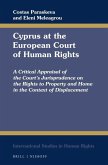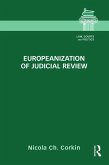Seminar paper from the year 2006 in the subject Law - Comparative Legal Systems, Comparative Law, grade: 13, Saarland University, language: English, abstract: It is now widely accepted that the law of the European member states should be harmonized to make Europe's economy more competitive. Business needs to operate across borders efficiently to stimulate a more competitive supply of goods and services. A plurality of separate solutions for the same issue is a risk that the uncertainty and complexity of the legal environment will undermine rather than enable legitimate economic activity. Therefore we need to create an economic environment underpinned by legal certainty and security. This essay on European Private Law discusses the progress of Europeanization in the field of Contract Law. It will, in doing so, especially focus on legal education and its contribution to achieve unification and harmonisation of European Union law. But, as the title indicates, in the actual centre ofthis essay, will be one scholar, who has significantly contributed to the understanding of comparative law and who has increased its status as a recognised legal subject: Basil Markesinis. It is furthermore my goal to provide English law students who are interested in comparative law topics with a guide to useful literature for their studies, especially with regards to German Law. I hope that this essay can contribute that comparative law may no longer be a "subject in search of an audience", as Markesinis called it[1], and to persuade English students of the benefits of comparative law studies.







![Lewis' Marine Manual [microform]: Being a Summary of the Law Relating to or in Any Way Connected With the Shipping and Mercantile Interests of the Inl Lewis' Marine Manual [microform]: Being a Summary of the Law Relating to or in Any Way Connected With the Shipping and Mercantile Interests of the Inl](https://bilder.buecher.de/produkte/65/65494/65494110m.jpg)
